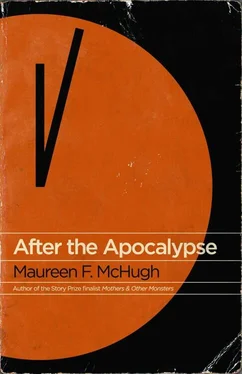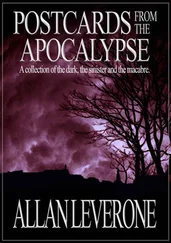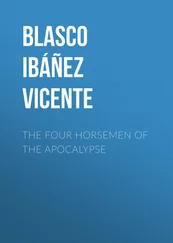“I hate beer,” Baiyue said.
“Beer or debt,” Jieling said.
While Baiyue drank the beer, Jieling started the boom box and did her routine. People smiled at her, but no one put any money in her cash box. Shenzhen people were so cheap. Baiyue sat on the curb, nursing her beer, not looking at Jieling or at anyone until finally Jieling couldn’t stand it any longer.
“C’mon meimei ,” she said.
Baiyue seemed a bit surprised to be called little sister, but she put the beer down and got up. They had practiced a routine to an M.I.A. song, singing and dancing. It would be a hit, Jieling was sure.
“I can’t,” Baiyue whispered.
“Yes you can,” Jieling said. “You do good.”
A couple of people stopped to watch them arguing, so Jieling started the music.
“I feel sick,” Baiyue whimpered.
But the beat started, and there was nothing to do but dance and sing. Baiyue was so nervous, she forgot at first, but then she got the hang of it. She kept her head down, and her face was bright red.
Jieling started making up a rap. She’d never done it before, and she hadn’t gotten very far before she was laughing and then Baiyue was laughing, too.
Wode meimei hen haixiude
Mei ta shi xuli
tai hen xiuqi—
My little sister is so shy
But she’s pretty
Far too delicate—
They almost stopped because they were giggling, but they kept dancing, and Jieling went back to the lyrics from the song they had practiced.
When they had finished, people clapped, and they’d made thirty-two yuan.
They didn’t make as much for any single song after that, but in a few hours they had collected 187 yuan. It was early evening, and night entertainers were showing up—a couple of people who sang opera, acrobats, and a clown with a wig of hair so red it looked on fire, stepping stork-legged on stilts waving a rubber Kalashnikov in his hand. He was all dressed in white. Uncle Death, from cartoons during the plague. Some of the day vendors had shut down, and new people were showing up who put out a board and some chairs and served sorghum liquor; clear, white, and 150 proof. The crowd was starting to change, too. It was rowdier. Packs of young men dressed in weird combinations of clothes from plague markets—vintage Mao suit jackets and suit pants and peasant shoes. And others, veterans from the Tajikistan conflict, one with an empty trouser leg.
Jieling picked up the boom box, and Baiyue took the cash box. Outside of the market, it wasn’t yet dark.
“You are amazing,” Baiyue kept saying. “You are such a special girl!”
“You did great,” Jieling said. “When I was by myself, I didn’t make anything! Everyone likes you because you are little and cute!”
“Look at this! I’ll be out of debt before autumn!”
Maybe it was just the feeling that she was responsible for Baiyue, but Jieling said, “You keep it all.”
“I can’t! I can’t! We split it!” Baiyue said.
“Sure,” Jieling said. “Then after you get away, you can help me. Just think, if we do this for three more Sundays, you’ll pay off your debt.”
“Oh, Jieling,” Baiyue said. “You really are like my big sister!”
Jieling was sorry she had ever called Baiyue “little sister.” It was such a country thing to do. She had always suspected that Baiyue wasn’t a city girl. Jieling hated the countryside. Grain spread to dry in the road and mother’s-elder-sister and father’s-younger-brother bringing all the cousins over on the day off. Jieling didn’t even know all those country ways to say aunt and uncle. It wasn’t Baiyue’s fault. And Baiyue had been good to her. She was rotten to be thinking this way.
“Excuse me,” said a man. He wasn’t like the packs of young men with their long hair and plague clothes. Jieling couldn’t place him, but he seemed familiar. “I saw you in the market. You were very fun. Very lively.”
Baiyue took hold of Jieling’s arm. For a moment Jieling wondered if maybe he was from New Life, but she told herself that that was crazy. “Thank you,” she said. She thought she remembered him putting ten yuan in the box. No, she thought, he was on the bus. The party functionary. The party was checking up on them. Now that was funny. She wondered if he would lecture them on Western ways.
“Are you in the music business?” Baiyue asked. She glanced at Jieling, who couldn’t help laughing, snorting through her nose.
The man took them very seriously, though. “No,” he said. “I can’t help you there. But I like your act. You seem like girls of good character.”
“Thank you,” Baiyue said. She didn’t look at Jieling again, which was good, because Jieling knew she wouldn’t be able to keep a straight face.
“I am Wei Rongyi. Maybe I can buy you some dinner?” the man asked. He held up his hands, “Nothing romantic. You are so young, it is like you could be daughters.”
“You have a daughter?” Jieling asked.
He shook his head. “Not anymore,” he said.
Jieling understood. His daughter had died of the bird flu. She felt embarrassed for having laughed at him. Her soft heart saw instantly that he was treating them like the daughter he had lost.
He took them to a dumpling place on the edge of the market and ordered half a kilo of crescent-shaped pork dumplings and a kilo of square beef dumplings. He was a cadre, a middle manager. His wife had lived in Changsha for a couple of years now, where her family was from. He was from the older generation, people who did not get divorced. All around them, the restaurant was filling up mostly with men stopping after work for dumplings and drinks. They were a little island surrounded by truck drivers and men who worked in the factories in the outer city—tough, grimy places.
“What do you do? Are you secretaries?” Wei Rongyi asked.
Baiyue laughed. “As if!” she said.
“We are factory girls,” Jieling said. She dunked a dumpling in vinegar. They were so good! Not congee!
“Factory girls!” he said. “I am so surprised!”
Baiyue nodded. “We work for New Life,” she explained. “This is our day off, so we wanted to earn a little extra money.”
He rubbed his head, looking off into the distance. “New Life,” he said, trying to place the name. “New Life …”
“Out past the zoo,” Baiyue said.
Jieling thought they shouldn’t say so much.
“Ah, in the city. A good place? What do they make?” he asked. He had a way of blinking very quickly that was disconcerting.
“Batteries,” Jieling said. She didn’t say bio-batteries.
“I thought they made computers,” he said.
“Oh, yes,” Baiyue said. “Special projects.”
Jieling glared at Baiyue. If this guy gave them trouble at New Life, they’d have a huge problem getting out of the compound.
Baiyue blushed.
Wei laughed. “You are special project girls, then. Well, see, I knew you were not just average factory girls.”
He didn’t press the issue. Jieling kept waiting for him to make some sort of move on them. Offer to buy them beer. But he didn’t, and when they had finished their dumplings, he gave them the leftovers to take back to their dormitories and then stood at the bus stop until they were safely on their bus.
“Are you sure you will be all right?” he asked them when the bus came.
“You can see my window from the bus stop,” Jieling promised. “We will be fine.”
“Shenzhen can be a dangerous city. You be careful!”
Out the window, they could see him in the glow of the streetlight, waving as the bus pulled away.
“He was so nice,” Baiyue sighed. “Poor man.”
“Didn’t you think he was a little strange?” Jieling asked.
Читать дальше












